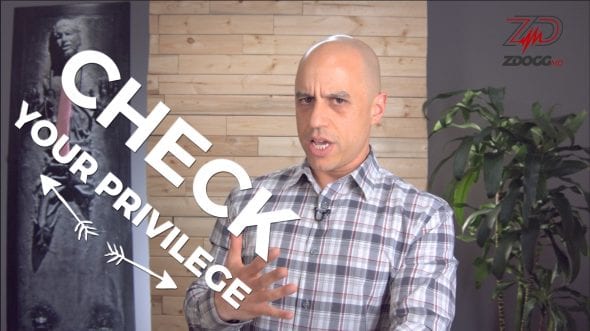iGen girls appear to be especially vulnerable to the deleterious effects of social media on their mental health. Here’s why, and how we can keep them safe.
Here are more of our videos, podcasts, and posts directly relating to this subject:
- A review of Jonathan’s Haidt’s work on over-parenting, fragility in children, and the importance of free play complete with links.
- The concept of “antifragility” as it relates to children (and healthcare).
- What the heck is going on with iGen.
- A partial solution: Screen Free Sunday
Check out the original Facebook video here and leave your thoughts and comments. If you’re running short on bandwidth and phone battery life, you can listen to the optimized audio-only podcast version here on iTunes and Soundcloud. Please subscribe and leave a review, it helps us a lot! The podcast is now available on Spotify as well, spread the word! FULL TRANSCRIPT BELOW.
Some top Facebook comments so far:
– Hey, what’s up, Z-Pac, it’s your boy, ZDoggMD. Okay, check it out, as a father of two daughters, this is a very important episode to me. And if you have kids of any gender, but girls in particular, I need you to listen to this. Increasing data is showing an alarming trend among young girls born after 1994, the so-called iGen, Generation Z. What we’re seeing is increasing rates of depression, increasing rates of anxiety, and people are like, oh, maybe we’re just overdiagnosing it, maybe people are more of snowflakes and they’re coming forth and saying, I’m depressed, and so on and so forth. Yeah, sure, you could theorize that, except that the suicide rate among these girls is increasing significantly.
That means this is real, and the question is why, and the second question is what can we do about it? So Jonathan Haidt and others in The Coddling of the American Mind have shown this trend to be caused by likely a couple of things. The first thing is we are creating a generation of very fragile children, and the reason is, we’re overprotecting them, we have this culture of safety. We don’t let them go out and experience the world and take risks, because children are by nature anti-fragile. They get stronger from a degree of adversity. We’ve been protecting them, so then when adversity does come, and it will, they fall apart.
That’s just one piece of it, here’s the bigger piece. What is it that pretty much everyone has in their hand right now, and that is a cellphone, a smartphone. We have weaponized something that is so dangerous to young girls in particular that it’s taken everyone by surprise, and that is social media, here’s why. It turns out, the data seems to suggest that young boys are aggressive, physically. They bully, they push, they hit, they punch. If we gave every young boy a handgun in the country, there would be an epidemic of violence because they don’t have a frontal lobe, they’re very impulsive, and they take their stuff out physically.
Young girls, we think are so sweet and full of sugar and spice. They’re actually just as aggressive. It’s a different type of aggression. It’s called relational aggression. They take their aggression out in social acts, hurting the reputation of others, sort of subtle bullying, verbally, this kind of emotional/relational aggression, less so physical aggression. And in the old days, meaning my generation, that could happen at school, it could happen in cliques, it could happen, particularly in middle school. But then you would go home and you were safe. Now what happens, we’ve effectively given every little girl the male equivalent of a handgun, a smartphone with a social media account, with an Instagram, with a Twitter, with a Facebook account, with a Snapchat. They go home and it’s constant, inbound, people attacking each other, calling each other names, trying to destroy each other’s reputations, creating cliques, the sense of fear of missing out. I’m at a party, look at me, you know what? We didn’t invite such-and-such. This direct relational attacks on young girls, where there’s nowhere they can be safe again, combined with the fact that they’re already fragile because we’ve been overparenting them and helicoptering them and keeping them safe from perceived threats when the world’s actually getting safer. Combine this all together, and you have a generation that is more anxious, more depressed, and more suicidal than in any time in recorded history.
So here is the call to action. If we’re gonna save our daughters from this, we need to do at least a couple things. The first thing is, we need to talk with our schools. We need to be involved in the school board and say, you know what, we need to monitor this kind of bullying behavior at school, and the idea that children need more free play. They need more risk tasking, they need less structured class time and more go out and do things, and we need to start enforcing that. But the second thing is, if your kid has a cellphone, they cannot have social media, even probably through high school. There is no reason for them to have it, and every downside for them to have it. So if you’re gonna give your kid a phone, turn off the social media. And if they have social media, you need to have access to every single account and you need to be looking at it. And even then, it’s probably not good enough. I am not giving the Z-Pups social media until they are done with high school, and that’s that. I am letting them out, I am teaching them resilience and self risk-tasking within parameters. And we need to do this together as a society, because if everybody isn’t on board, how are we gonna pull this off?
So here’s the call to action. Share this video, become a supporter. It allows us to do what we do. But then get those phones out of our kids’ hands. Turn the social media off, hug your kid, but let them take risk, toughen them up. And shoot, I’m gonna do it today, and then I’m gonna get slapped by both my daughters across the face, which is sign that they are tough, all right, we out.
Related Videos
Category
- The ZDoggMD Show (797)
- Featured Videos (188)
- Doc Vader (142)
- Against Medical Advice (128)
- Medical Humor (95)
- Public Service Announcements (87)
- Music Parodies (74)
- Nurses (59)
- Meditation (38)
- ZVlogg (36)
- The VPZD Show (31)
- ZTalks (28)
- ZBlogg (24)







